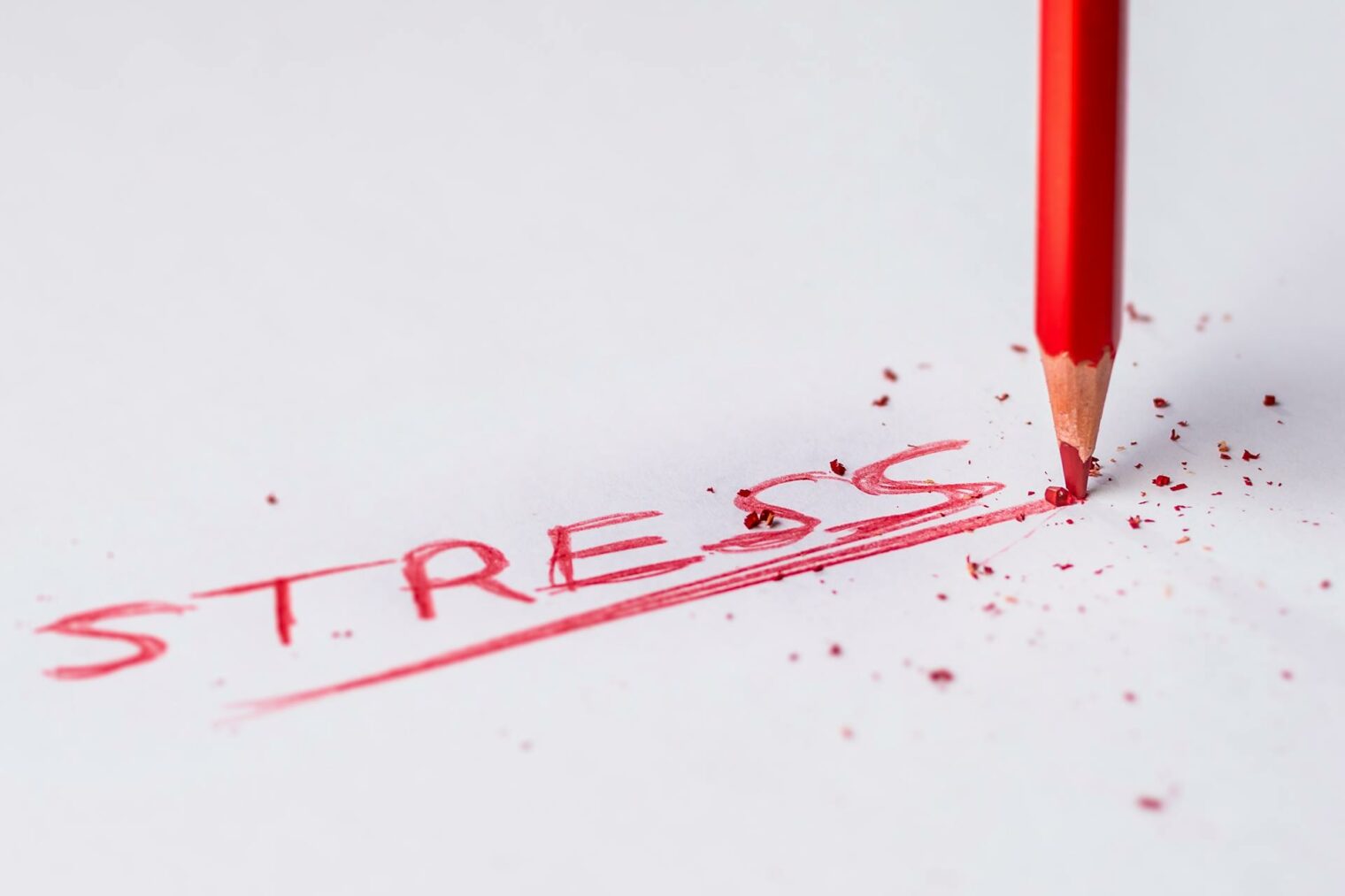Stress management for men has never been as important as it is in 2024. Stress is a common problem that many men face. It can come from work, family, or personal issues. Feeling stressed can make us feel like we are under a lot of pressure and not sure what to do about it.
A recent study found that almost half of the men in Britain feel stressed at least once a week.
In this blog post, we will look at effective strategies for managing stress specifically tailored for men in 2024. We will explore how to understand and deal with stress in healthy ways, find support, and maintain a good balance between work and life.
This guide aims to give you tools for better mental health and stress relief.
Read on to discover how these stress management for men strategies can help you feel calmer and more in control.
Understanding Stress and Its Effects on Men
Men experience stress in various ways, affecting their physical and mental health. Stress can manifest through work pressure, financial concerns or relationship strain. Its impact on men’s overall well-being cannot be underestimated.
Different ways men may experience stress
Men might feel stress creep into their lives through job pressures, the weight of financial responsibilities, or struggles in personal relationships. Job deadlines can trigger a rush of anxiety, while money concerns often brew under the surface, affecting sleep and daily mood.
Personal bonds, whether with partners, family members, or friends, sometimes strain under miscommunication and unmet expectations.
Physical symptoms also signal stress in men; headaches start to become frequent visitors and energy levels may drop significantly. Stress relief for men becomes crucial as these experiences pile up.
After discussing how men deal with stress differently, it’s important to look at its impact on health next in regards to stress management for men.
The impact of stress on physical and mental health
Stress can have a profound impact on both physical and mental health. It not only triggers the body’s natural fight-or-flight response, leading to increased heart rate and blood pressure but also weakens the immune system over time.
Chronic stress is linked to various health issues such as headaches, muscle tension, sleep disturbances, and digestive problems. Moreover, it significantly affects mental well-being by contributing to anxiety, depression, irritability, and difficulty concentrating.
Furthermore, stress can elevate the risk of developing serious conditions like cardiovascular disease and diabetes while exacerbating existing conditions like asthma or chronic pain.
Identifying and Prioritising Stressors
Identify and prioritise stressors to effectively manage them. This can involve taking an inventory of the various sources of stress in your life and determining which ones require immediate attention.
Taking an inventory of stressors in life
Take time to list and prioritise the stressors in your life, from work demands to financial pressures. Reflect on family responsibilities, relationship challenges, and personal health concerns.
Jot down everything contributing to your stress load. Evaluate each factor’s impact on your mental and physical well-being, distinguishing between major and minor stressors.
Consider not only work-related issues but also factors affecting home life. This exercise will help you gain clarity about what is truly causing you distress, enabling you to focus on those particular areas when developing effective stress management strategies.
Prioritising and addressing the most pressing stressors
Identify the most critical stressors in your life by taking stock of what triggers your stress. Once identified, prioritise addressing these pressing stressors to alleviate their impact on your mental and physical well-being.
By tackling them head-on, you can relieve the weight that they place on you, making way for a healthier and happier state of mind.
Assess and weigh each stressor based on how it affects you. Addressing these stressors takes time and effort but is crucial for achieving a balanced and less stressful lifestyle.
Healthy Coping Mechanisms
To effectively cope with stress and promote mental wellness, it is crucial to adopt healthy coping mechanisms. Engaging in activities such as regular exercise, practising mindfulness or meditation, and seeking support from friends and family can be beneficial in stress management for men.
Avoiding unhealthy coping mechanisms
It’s crucial to steer clear of unhealthy coping mechanisms such as excessive alcohol consumption, drug use, or emotional eating. Seeking solace in these habits can lead to further mental and physical health issues rather than providing genuine relief.
Engaging in open conversations with trusted individuals, prioritising self-care, and seeking professional help are more effective ways to address stress. Regular exercise and cultivating hobbies can also be beneficial stress management for men strategies for men without the detrimental effects associated with unhealthy coping mechanisms.
Incorporating relaxation techniques
Transitioning from avoiding unhealthy coping mechanisms to incorporating relaxation techniques is crucial for managing stress effectively. Engaging in activities such as meditation, deep breathing exercises, and yoga can help reduce the body’s stress response.
Taking time to unwind with hobbies or listening to calming music can also promote relaxation and provide a much-needed mental break. It’s important to make time for these practices daily to experience their full benefits.
Incorporating regular exercise into your routine can also significantly reduce stress levels by releasing endorphins and promoting better sleep. Additionally, setting boundaries around work and allocating downtime throughout the week can prevent burnout and allow for essential rest and rejuvenation.
Seeking support from friends and family
Transitioning from incorporating relaxation techniques to seeking support from friends and family is crucial for men’s mental health. Engaging with supportive friends helps alleviate stress and provides a safe space to share concerns without judgment.
Similarly, confiding in family members strengthens the social support network that can enhance resilience in coping with life’s challenges.
Managing work-life balance
Managing work-life balance is crucial for maintaining one’s overall well-being and reducing stress. Establishing a clear boundary between work and personal life can help individuals allocate time for both professional responsibilities and personal activities, thereby preventing burnout and enhancing mental resilience.
Engaging in regular physical exercise, scheduling leisure time, and setting realistic work expectations are important strategies to achieve a healthy work-life balance.
To ensure that personal life does not become overshadowed by professional commitments, it’s essential to set boundaries regarding working hours and unplugging devices after completing the day’s tasks.
By practising effective time management skills, individuals can foster a sense of control over their daily routines while managing competing demands effectively. You need to understand the options for stress management for men in 2024.

Proactive Stress Management for Men
Take charge of your health by incorporating healthy lifestyle choices, finding ways to reduce work-related stress, and managing financial stress. To learn more about effective stress management for men strategies in 2024, read on.
Maintaining a healthy lifestyle
Maintaining a healthy lifestyle is crucial for effectively managing stress. Engaging in regular physical activity, such as brisk walks or workouts, can significantly reduce stress levels.
Additionally, ensuring a balanced diet rich in fruits, vegetables, and lean proteins provides the body with essential nutrients to combat stress. Adequate sleep is also paramount; establishing a consistent sleep schedule and creating a relaxing bedtime routine can promote better sleep quality.
Furthermore, limiting alcohol consumption and avoiding tobacco use contributes to overall mental well-being.
Finding ways to reduce stress at work
Exploring ways to reduce stress at work is vital for maintaining mental wellness. Engaging in regular physical activity during breaks, such as a brisk walk or stretching exercises, can help alleviate tension and improve focus.
Establishing clear boundaries around tasks and schedules helps maintain a healthy work-life balance while reducing the risk of burnout. Additionally, taking short, mindful breaks throughout the day to step away from screens and reset mentally can significantly reduce stress levels.
Practising effective time management techniques is crucial in prioritising tasks and minimising overwhelming workloads.
Unveiling strategies for improved workplace stress management for men lays a foundation for enhanced overall well-being. Recognising individual stress triggers allows men to actively address sources of tension, fostering a more positive work experience.
Understanding and dealing with burnout
Understanding and managing burnout is crucial for maintaining mental wellness. Recognising the signs of burnout, such as fatigue, irritability, and decreased motivation, is the first step in addressing it.
Engaging in regular self-care activities can help prevent burnout by promoting relaxation and reducing stress levels. It’s important to establish healthy boundaries at work and prioritise personal time to recharge.
Seeking support from colleagues or a mental health professional can also provide valuable insights into coping with burnout effectively. Understanding stress management for men has never been so important.
Managing financial stress
Dealing with financial stress requires actively managing your budget and seeking practical solutions to ease the burden. Create a realistic spending plan that accommodates essential expenses and sets aside funds for savings or emergencies.
Explore additional income sources through part-time work or freelance opportunities to bolster your finances. Seeking professional financial advice can provide tailored strategies for reducing debt, investing wisely, and securing long-term financial stability.
Navigating through financial challenges involves taking concrete steps to alleviate money-related stress. Evaluate your current financial standing, make necessary adjustments, and seek support from reputable resources such as financial advisors or community assistance programs.
Avoid bringing work stress home.
To prevent work stress from impacting your home life, establish clear boundaries between work and personal time. Communicate with your employer about the importance of maintaining a healthy work-life balance.
Engage in activities that help you unwind after work, such as exercise, hobbies, or spending quality time with loved ones. Create a calming routine to transition from work mode to relaxation at the end of each day.
Disconnecting from electronic devices used for work can also aid in separating professional and personal spheres.
Stress Management for Men in 2024
Stress management for men is essential in 2024. By understanding and addressing stressors, prioritising mental health, and proactively managing stress through healthy coping mechanisms, they can lead to significant improvements.
Implementing these practical strategies can pave the way for a healthier lifestyle and improved overall well-being. Additionally, seeking support from friends and family or professionals is crucial in navigating life’s complexities.
Ultimately, taking proactive steps towards stress management for men will lead to positive outcomes and better mental resilience.
